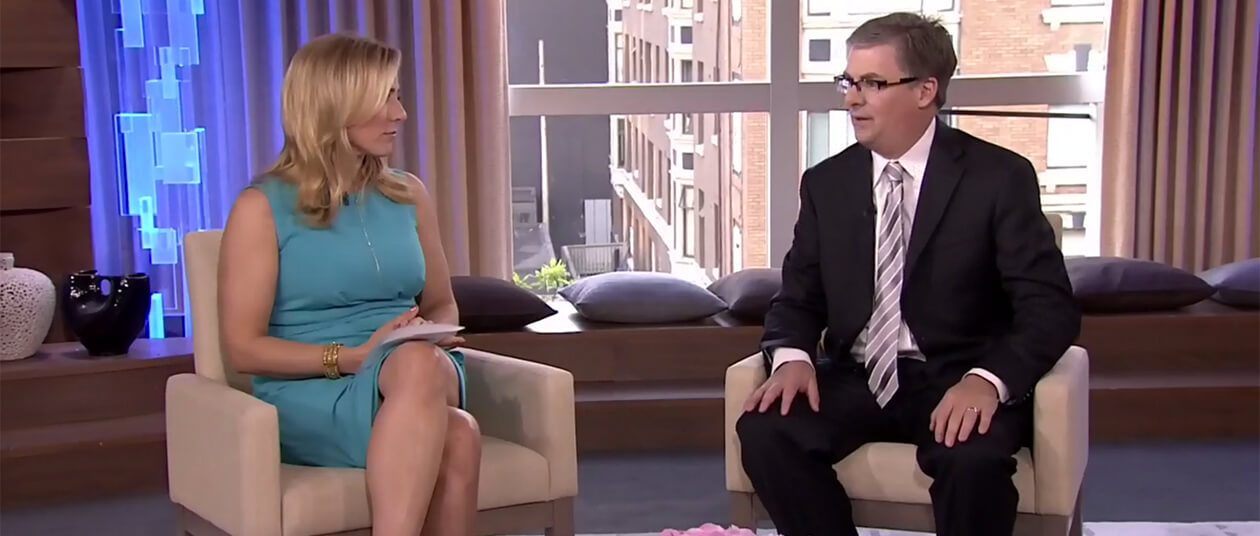If you’re an investor and don’t know what CRM2 is, you may want to pay attention. It refers to regulatory changes that will affect the way your investments are reported. Read on to learn what it means and how you can prepare.
Our Ian Thomas sat down with CTV Morning Live to share all the details.
What’s changing?
The changes are referred to as CRM2 and are applicable across the industry. CRM2 stands for the second phase of a new Client Relationship Model introduced by the Investment Industry Association of Canada. The changes are essentially designed to make it easier to understand the reporting on your investments.
With the latest disclosure initiative, investors will receive two additional statements with their year-end statement.
- The first is an annual performance report that details how their investments are faring. It will include the rate of return the investor actually received, as opposed to a general statement about the performance of the mutual fund.
- The second is a statement on the fee structure of your investments, helping investors understand what they are paying in costs and fees—what is generally termed as the funds Management Expense Ratio (MER)
What does it really mean for me as an investor?
The information on investment costs is a significant change from the way portfolio statements have traditionally been reported in the past. The actual costs associated with investing have not changed – they have always been there, but under the old model, statements only provide bottom-line numbers on the net value of an investment account, after all fees and costs have been subtracted.
How do the new statements work?
The two new statements complement each other to help investors better evaluate the content and management of their investments. Your returns will be easier to understand because of the improved performance reporting. This will allow you to compare these returns to your costs, or Management Expense Ratio, to help with your decision-making.
CRM2 means investors will be able to see and understand the cost of investing, making them better informed investors.
Thanks to these changes, investors will be able to determine whether they are getting good value on their investment portfolios.
The Management Expense Ratio (MER).
The Management Expense Ratio (MER) is the key measure of your investment costs. Your statement may list other costs, but the MER is the number one focus when evaluating what you’re paying.
The MER is made up of the following four components:
- Management fees: These are fees paid out of your investment to the fund company, the firm that makes all the investment decisions within the fund.
- Operating expenses: Fees for house-keeping items such as record keeping and reporting.
- Trailing commission or “trailer fees”: This is a percentage of the value of the investment that is paid to (a) the financial advisor for their professional services and (b) to the fund dealer, the firm that provides back-office support such as issuing statements, facilitating online access to your statements, annual tax reporting, etc.
- Taxes: GST/HST.
The MER is expressed as an annual percentage of the total value of the investment. To cite an example, if the value of your investment is $10,000, and your management fee, operating expense, trailer fees, and taxes add up to $179, your MER will be 1.79%.
Three tips to use this new reporting in investment planning.
- Contact your financial advisor before you receive the new statements. This will allow your advisor to explain the changes more fully to you and answer any questions you may have. Reviewing your cost and performance numbers in person with your financial advisor will allow you to evaluate your overall investment strategy to make sure you are getting the best return on investment.
- Take the time to understand the new information, especially the cost disclosures. Since this wasn’t part of the reporting in the past, some investors may wonder if these are new fees. Remember these fees have always been part of your portfolio. The new reporting simply separates them out.
- Investors will want to weigh their costs carefully against several factors. Don’t look at the Management Expense Ratio in isolation – consider it along with factors such as the return on your funds, the professional services and expertise you receive from your financial advisor and mutual fund dealer, and the comparative performance and costs for similar investment funds.
Have more questions? We’re here to help with your investment needs, just contact us.



